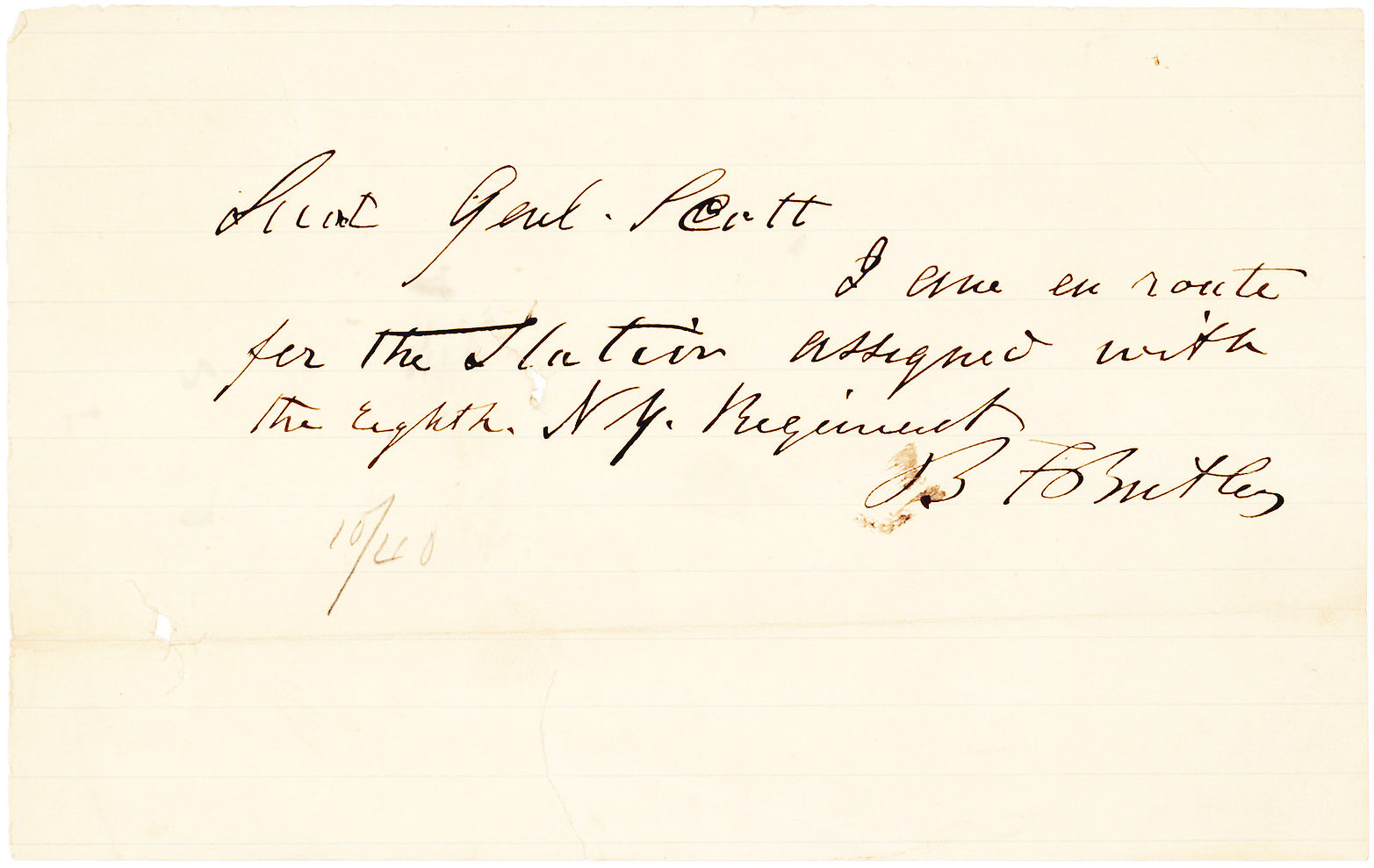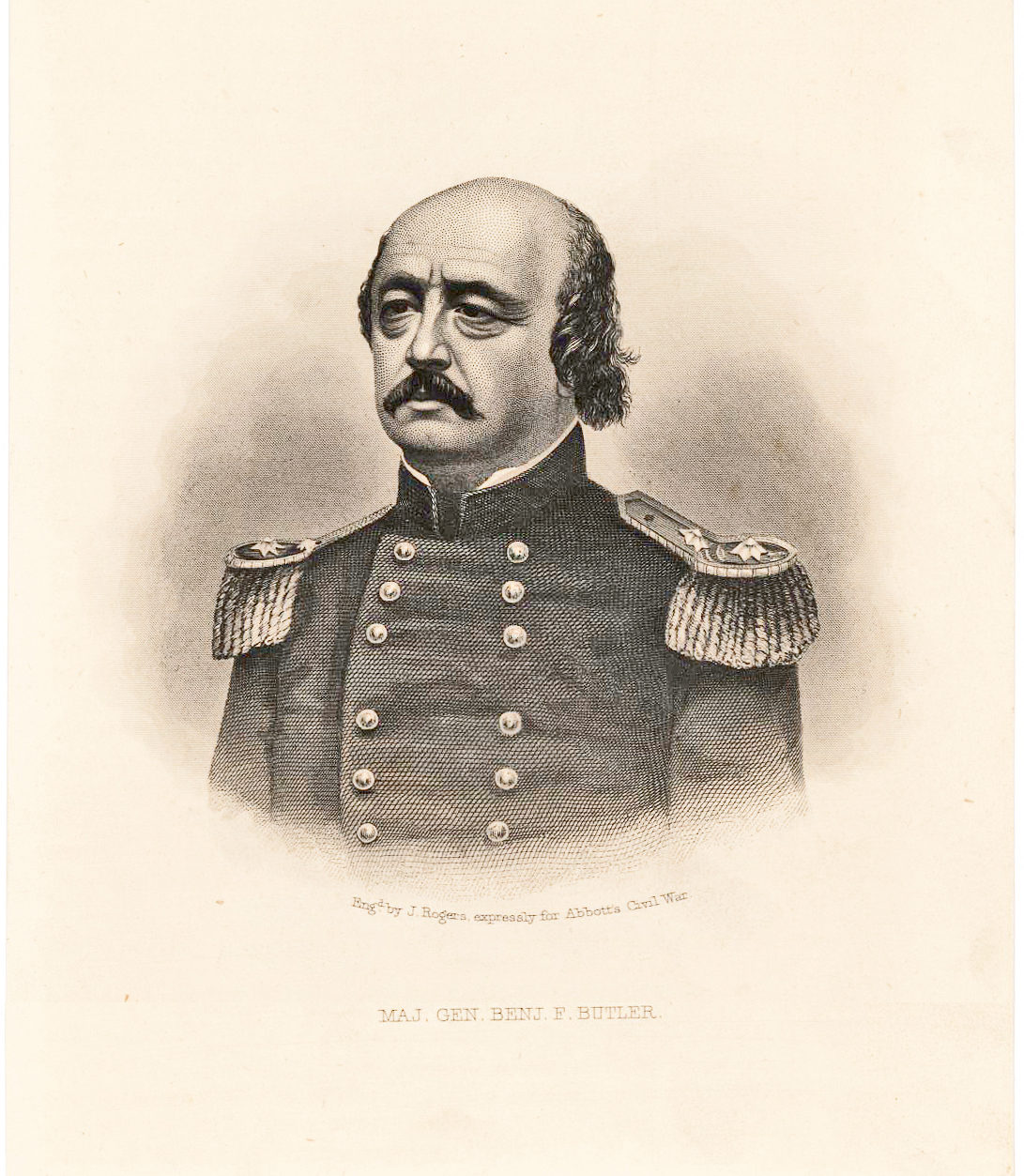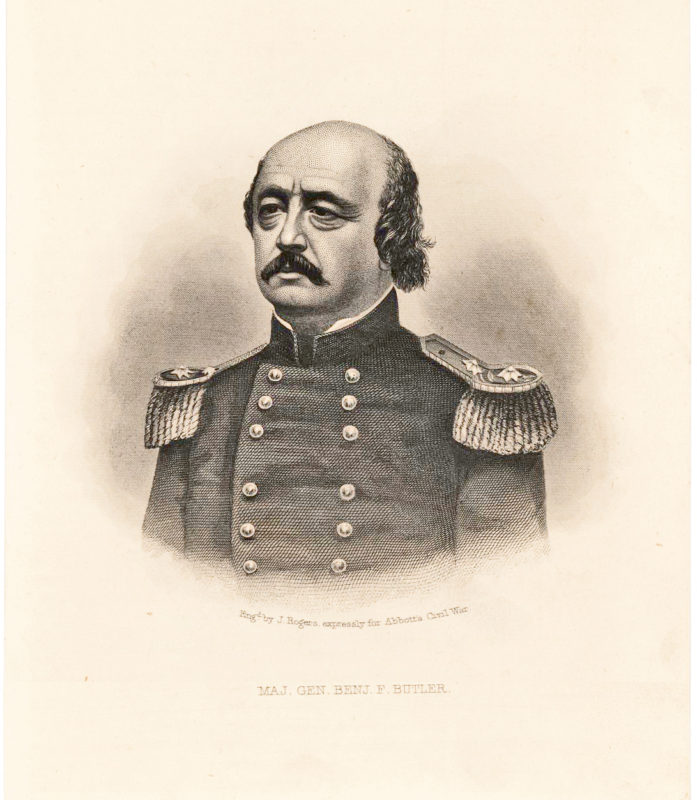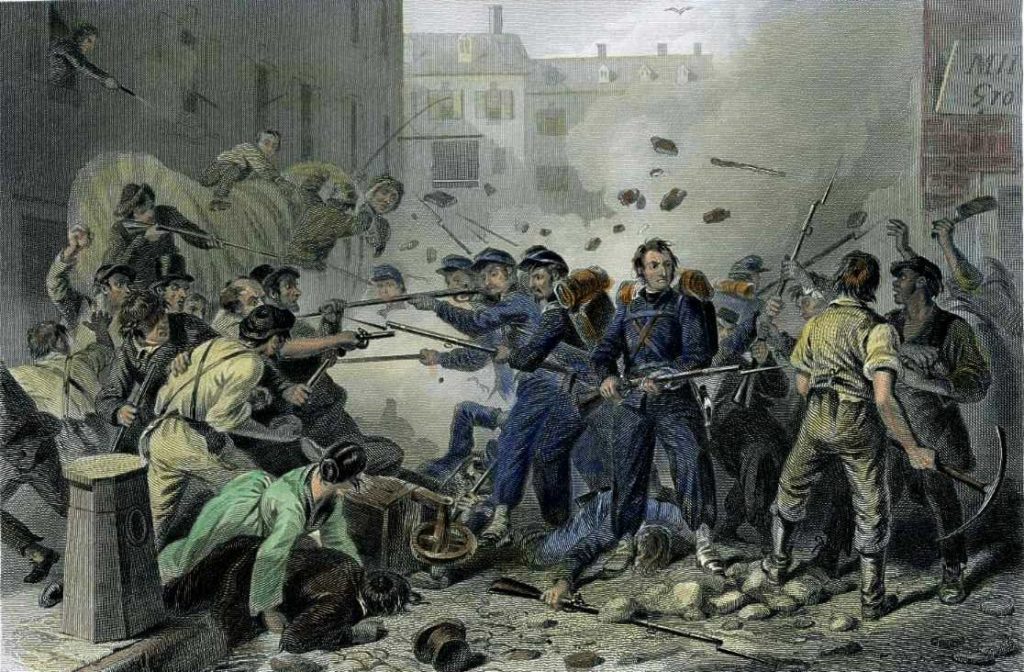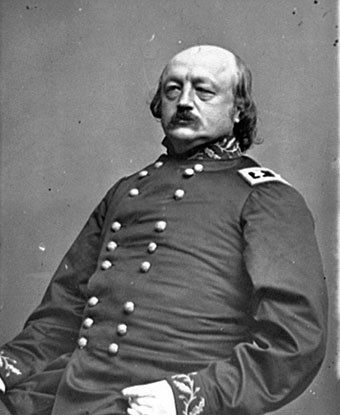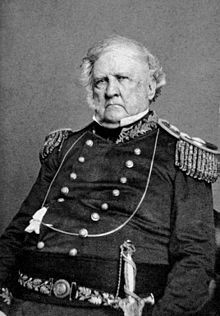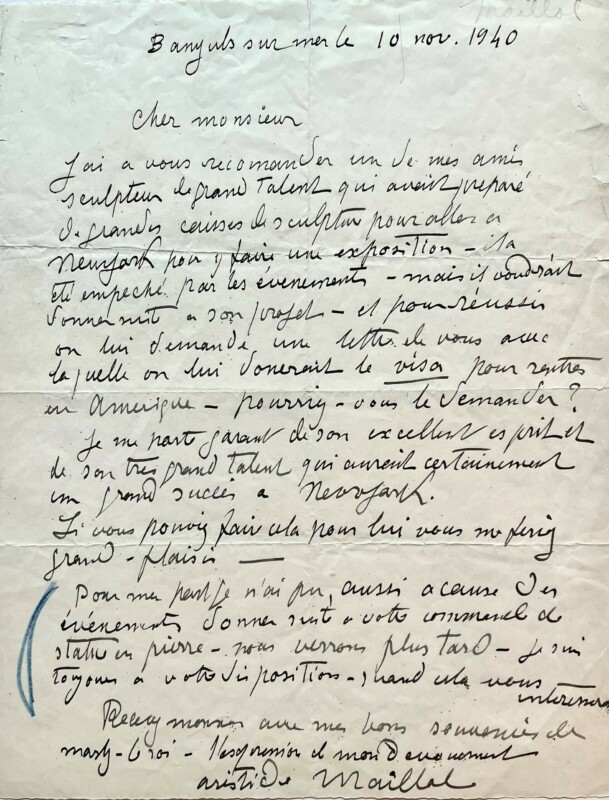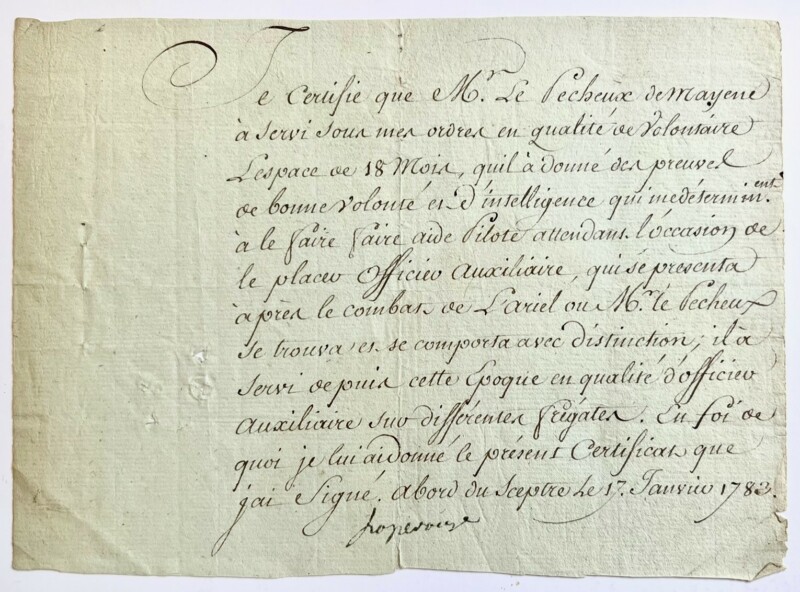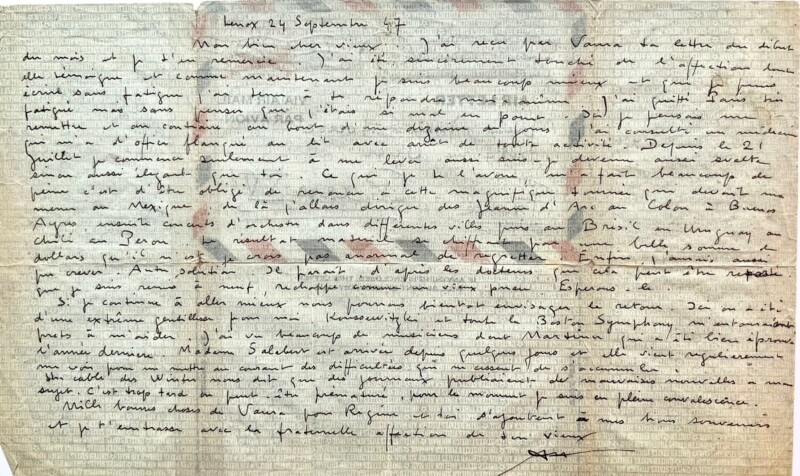Butler had a checkered military career throughout the war. “Although his military exploits were not such as to earn him a place beside Napoleon and Marlborough, in other respects [Butler’s] contributions to the Union cause were little short of monumental. Badly defeated in the action at Big Bethel while in command of Fort Monroe, Butler was the first to apply the term ‘contraband-of-war’ to slaves of Southern masters who fled into the Union lines,” (Generals in Blue, Warner). After his army’s successful campaign against New Orleans, Butler occupied the city during 1862. However, his “administration of New Orleans is the most controversial of his career. It is at least evident that he preserved the peace and effectively governed the city, improving sanitation, and doing other useful things. It is equally evident that his conduct of affairs was high-handed. Ignoring the United States government, he assumed full financial control, collecting taxes, and expending monies. He hung William Mumford for hauling down the United States flag. He seized $800,000 in bullion belonging to Southern owners, which had been left in charge of the French consul… Still more sensational was his Order No. 28,” which proclaimed that women insulting U.S. soldiers would be treated as though they were prostitutes, (DAB). These controversial actions led to Butler’s replacement.
As a post-bellum congressman, Butler was involved in the 1868 impeachment proceedings against President Andrew Johnson. He became governor of Massachusetts in 1882 and served until the end of 1883. The following year he ran for president as a candidate of the Greenback-Labor Party, finishing third in the popular vote behind Grover Cleveland and James G. Blaine, and not winning a single electoral vote.
Our letter is addressed to Lieutenant General Scott, a rank conferred on him by Congress in 1855, and the first time an officer was awarded the rank since George Washington.
Written on lined paper with two small holes, one of which affects a word. Slight smudging of the first letter in Butler’s signature, and with a pencil notation below the text. Minor folding, otherwise in very good condition; a steel engraving of Butler in included. Uncommon in war date.

